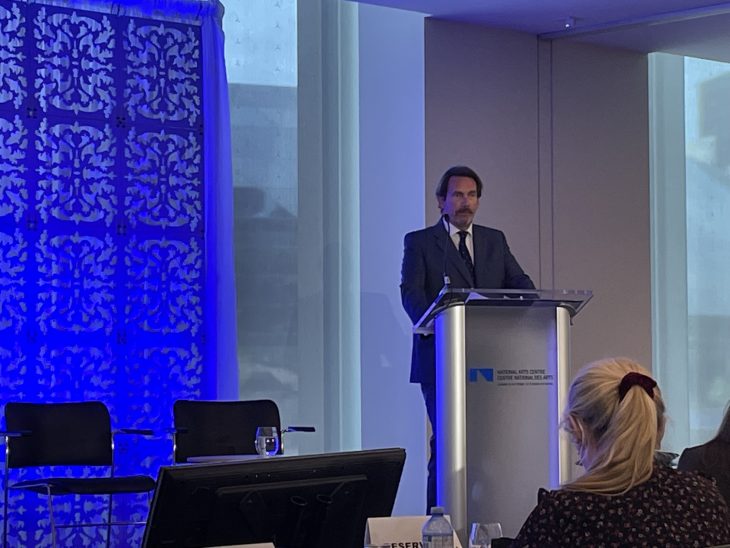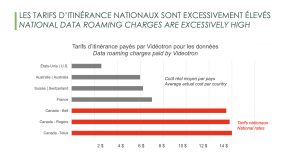
By Denis Carmel
OTTAWA – In a keynote speech at the International Institute of Communications’ annual conference in Ottawa on May 16, Pierre-Karl Péladeau, CEO of Québecor, in his usual frank manner urged Parliament to pass Bill C-11 and Bill C-18. As well, he wants to see more competition in wireless. (Péladeau gave his speech in a combination of English and French.)
Wireless
“Our legislative and regulatory system has to ensure a healthy competition in the market, to benefit consumers but also to ensure the perennity of the Canadian broadcasting and telecommunications systems,” he said.
Péladeau mentioned the Competition Bureau indicated competition had lessened when Rogers announced its acquisition of Shaw. “Although some people would have you believe it is a coincidence, I would be naïve to believe so. I will go further; nobody is fooled in this business.”
He went on quoting Mirko Bibic, CEO of BCE: “The competitive intensity between two potentially merging parties isn’t quite as it used to be, and that’s probably benefiting the entire industry.”
“The existence of this oligopoly is responsible for the lack of competition, and consumers are the big losers. Carriers such as Videotron are also affected,” Péladeau went on.
He points to the example of wholesale data roaming where prices in Canada are now double the ones in the EU but are all the same. (Please see chart below.)

Since Videotron introduced competition in Québec the prices have come down. The same bundle is offered at $85 in Canada while it is retailed at $65.
“Videotron is eager to show Canadians how a strong 4th player can disrupt the established order of things and be beneficial in a very concrete way,” Péladeau said, without ever mentioning Freedom!
Broadcasting
He mentioned the online giants and their impact on traditional broadcasting, and he mentioned that the governments were slow to act or rather to react. After providing many sombre statistics showcasing the impact of online giants on Canadian media, he said C-18 was a step in the right direction and he hopes the agreements are at the levels required to maintain the quality of providing quality news to ensure a healthy democracy.
“To put things in perspectives, in June 2021, Google and Facebook market capitalization was approximately $2,500 billion, $500 billion more than the Canadian GDP.”
His point is probably that they can afford it.
Péladeau also had a gripe with the “Net Neutrality principle, an ill-defined and misunderstood concept, that force Internet access providers to open their networks without discrimination.”
“55% of bandwidth is used by the Netflix, Amazon and Prime plus without any remuneration going toward the enterprises who opened the way,” he went on, mentioning that tens and tens of thousands of dollars were invested in building them.
But that could be the next battle.
Chart from borrowed from Pierre-Karl Péladeau’s presentation.



